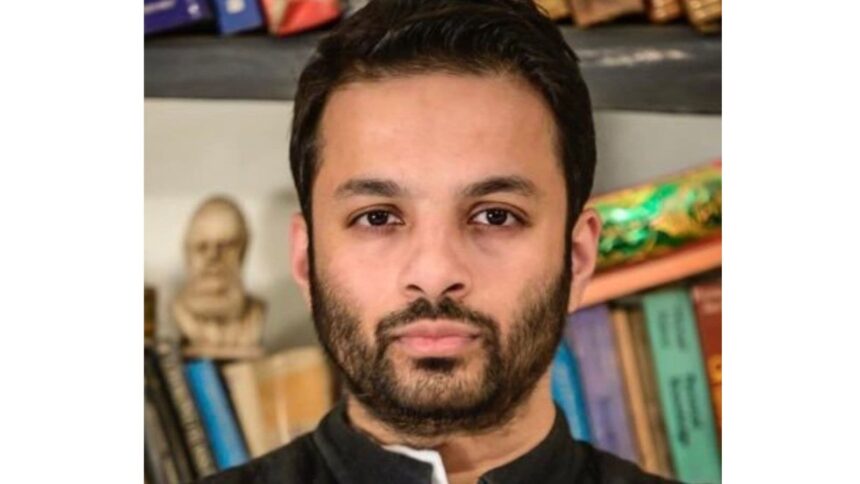A day after the Centre announced that the , the Haryana Police Sunday arrested Ali Khan Mahmudabad, associate professor and head of the Department of Political Science at Ashoka University in Sonipat, for remarks he posted on social media that, an FIR alleged, “disparaged women officers in the Indian Armed Forces and promoted communal disharmony”.
Sonipat DCP (Crime) Narinder Kadian said Mahmudabad was arrested in based on two separate FIRs lodged on complaints received from the Haryana State Commission for Women chairperson Renu Bhatia and Jatheri village sarpanch Yogesh Jatheri who is also the general secretary of Yuva Morcha in the state.
Both the FIRs refer to a post by Mahmudabad, a member and former spokesperson, on May 8 in which he said the optics of the media briefing on Operation Sindoor by women officers — Col Sofiya Qureshi and Wg Cdr Vyomika Singh — was “important” but would be “hypocrisy” if it didn’t “translate to reality on the ground”.
DCP Kadian said the FIRs were lodged at the Rai police station in Sonipat under various sections of the Bharatiya Nyaya Sanhita (BNS).
The FIR, based on the complaint of Bhatia, has been lodged under sections 353 (statements conducing to public mischief), 79 (word, gesture or act intended to insult modesty of a woman) and 152 (act endangering sovereignty, unity and integrity of India).
The FIR on Jatheri’s complaint was lodged under section 196(1)(b) (promoting enmity between different groups on grounds of religion), 197(1)(c) (assertions prejudicial to national integration), 152 (act endangering sovereignty, unity and integrity of India) and 299 (malicious act intended to outrage religious feelings).
The police produced Mahmudabad before a local court later and obtained remand for two days.
Sunday’s arrest was sharply criticised by Opposition leaders — from TMC to RJD and AIMIM — who described the police move as “deplorable” and “utterly condemnable”. The Opposition also referred to remarks made on May 12 by Madhya Pradesh Tribal Affairs Minister Vijay Shah that India taught a lesson to those responsible for the Pahalgam terror attack using “their own sister (unki samaj ki behen ke zariye)” in an indirect reference to Col Qureshi. They pointed out that no action was taken against Shah.
In an internal email circulated Sunday, the Committee for Academic Freedom (CAF) at Ashoka University called the arrest “disproportionate punishment made on flimsy grounds” and “a fundamental attack on academic freedom”.
The key portion of Mahmudabad’s post reads: “I am very happy to see so many right wing commentators applauding Colonel Sophia Qureishi but perhaps they could also equally loudly demand that the victims of mob lynchings, arbitrary bulldozing and others who are victims of the BJP’s hate mongering be protected as Indian citizens. The optics of two women soldiers presenting their findings is important but optics must translate to reality on the ground otherwise it’s just hypocrisy.”
In conclusion, he wrote: “For me the press conference was just a fleeting glimpse — an illusion and allusion perhaps- to an India that defied the logic on which Pakistan was built. As I said, the grassroots reality that common Muslims face is different from what the government tried to show but at the same time the press conference shows that an India, united in its diversity, is not completely dead as an idea.”
Following the post, the Haryana women’s commission issued a notice to Mahmudabad on May 12, claiming his remarks were “an attempt to vilify national military actions”. Two days later, Mahmudabad issued a statement saying that his remarks were “completely misunderstood”. “Contrary to the allegations, my post appreciated the fact that the armed forces chose Colonel Sofiya Qureshi and Wing Commander Vyomika Singh for the press conference to highlight that the dream of the founders of our Republic, of an India united in its diversity, is still alive,” he had posted.
In her police complaint, Bhatia accused the professor of “using the narrative of war” when war had not been officially declared and calling a political party “a hate mongering entity”.
According to DCP Kadian, Sarpanch Jatheri’s complaint stated that Mahmudabad’s remarks “deeply hurt him” on a “personal” level. Jatheri was not available for comment. Haryana BJP spokesperson Sanjay Sharma said security agencies were “taking action as appropriate for the security of the country”.
Ashoka University had last week distanced itself from Mahmudabad’s post, saying “they do not represent the opinion of the university”. On Sunday, the university said it will “continue to cooperate with the Police and local authorities in the investigation, fully.”
Samajwadi Party national spokesperson Abdul Hafeez Gandhi told that Mahmudabad “is being unfairly targeted for exercising his constitutional right to free speech”.
AIMIM president called the arrest “utterly condemnable”. “This targets an individual for his opinions; his post wasn’t anti-national or misogynistic. A mere complaint by a BJP worker made Haryana police take action,” said Owaisi.
Mahmudabad got his PhD from Cambridge researching Muslim identity formation in North India between 1850 and 1950, with a focus on mushairah (poetic symposium) and evolving notions of watan (homeland). He has also written on transnational Shia networks, studied Arabic in Damascus, and conducted fieldwork across Syria, Lebanon, Egypt, Iran, Iraq and Yemen.
Former Union Minister and senior Congress leader Salman Khurshid, one of the Opposition leaders who will be part of the delegation on Op Sindoor, told The Indian Express: “I don’t have all the details regarding the FIR against him, but I can say that he and his family have been very distinguished people and nothing unlawful can be associated with them.”
(With Vidheesha Kuntamalla)
During his time in Uttar Pradesh, he covered politics, crime, health, and human rights among other issues. He did extensive ground reports and covered the protests against the new citizenship law during which many were killed in the state.
During the Covid pandemic, he did extensive ground reporting on the migration of workers from the metropolitan cities to villages in Uttar Pradesh. He has also covered some landmark litigations, including the Babri Masjid-Ram temple case and the ongoing Gyanvapi-Kashi Vishwanath temple dispute.
Prior to that, he worked on The Indian Express national desk for three years where he was a copy editor.
Rehman studied at La Martiniere, Lucknow and then went on to do a bachelor’s degree in History from Ramjas College, Delhi University. He also has a Masters degree from the AJK Mass Communication Research Centre, Jamia Millia Islamia.








